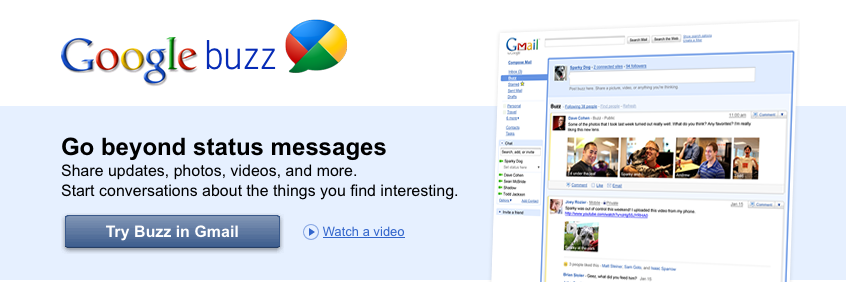Home | Solutions Blog | Online/Social Media Privacy
Posts tagged "Online/Social Media Privacy"
A close friend of mine just had his Facebook account taken over and used for pretty nasty things, so… this is just a quick reminder to change your Facebook password frequently for added security. If you have been a member for years, like most people, and have not ever changed your password, I recommend you do so right now (don’t wait, you’ll never do it later).
On a site like Facebook that houses so much of your personal reputation and information, it is good to keep passwords new and difficult to hack. We see people’s Facebook profiles get hacked every day from clicking on malware and phishing schemes – and once they have your Facebook password, they probably have the same password you use on other accounts. Changing your password frequently, as simple as it sounds, is an easy way to avoid some of the privacy problems posed by Facebook. Once you are logged in, visit your Account Settings Page. On the first page next to Password click change.
Posted in Identity Theft Prevention, Online Privacy by Identity Theft Speaker John Sileo.
Tags: Account Takeover, Change Facebook Password, Change Password, Facebook, Facebook Password, Facebook Safety, Facebook Safety Survival Guide, Fraud, identity theft expert, malware, Online/Social Media Privacy, Password, Security, social networking
Facebook has announced that they will be rolling out a new security feature that will add full HTTPS support to the site. The new secure site uses the same underlying technology that banks use to keep your communications out of the reach of potential hackers. While many people don’t have this feature yet and mine just showed up today, eventually all users should have the capability.
To enable HTTPS, log into your Facebook account and at the top right go into Account -> Account Settings.
Once there, scroll all the way to the bottom and click “change” next to Account Security.
The following screen should pop up. Check the box under Secure Browsing. You can also check “send me an email” (or a text message to your cell phone, which I don’t advise giving to Facebook) so that if someone tries to log into your account from a new computer, Facebook will immediately alert you. This is a good way to find out fast if your account has been hacked.
Posted in Cyber Data Security, Identity Theft Prevention, Online Privacy by Identity Theft Speaker John Sileo.
Tags: Facebook, Facebook Safety, Facebook Security, HTTPS Facebook, identity theft expert, John Sileo, Online/Social Media Privacy, social networking, Social Networking Speaker
Facebook is preparing to give away your phone number and address to app developers and advertisers.
The frog is officially beginning to boil. Just check out all of the articles swirling around on the internet about Facebook’s latest attempt to release more of your information without your consent. This time they want to give out your phone number and address. They were pretty clear that the reason they want this information is to pass it on to developers of apps such as Farmville and advertisers that want to bolster their profile on you. They released the post late Friday afternoon – so late in fact that many news outlets didn’t pick it up until Monday. Many are accusing Facebook of trying to bury the news.
Here is what was posted:
Posted in Cyber Data Security, Identity Theft Prevention, Online Privacy by Identity Theft Speaker John Sileo.
Tags: facbook, Facebook, Facebook Address, Facebook Changes, Facebook Phone Number, Facebook Safety, Identity Theft Prevention, John Sileo, Online/Social Media Privacy, Social Netoworking Expert, social networking, Social Networking Speaker
Direct messages sent through Twitter can be easily exposed, thanks to a loophole in Twitter’s API, according to Gary-Adam Shannon at Search Engine Watch Reports. When a user logs into another site using their Twitter user name and password, the site can gain access to the private messages, says Shannon. He goes into technical detail, but essentially it’s just a small hack.
Shannon recommends you don’t ever log in to a site (other than Twitter.com, obviously) using your Twitter user name and password. Another writer at Search Engine Watch recommends that users erase their Direct Messages after viewing them. There has been no comment from Twitter, but we hope they are looking into the issue now that the problem has been made public.
Read more…
Posted in Identity Theft Prevention, Online Privacy by Identity Theft Speaker John Sileo.
Tags: Direct Messages, identity theft expert, John Sileo, Online/Social Media Privacy, Security, Social Media Privacy, social networking, twitter, Twitter Loophole, twitter privacy, Twitter Safety, Twitter Security

Facebook: Press 2 For Law Enforcement
I received an email last night from a well-known TV anchor wanting my input on a new Facebook issue. He’d read that when calling Facebook Headquarters, the automated attendant comes on and gives you options to reach each department, and the second option was to press 2 for “law enforcement.”
It could seem odd to many, but it’s true. If you call the Facebook Headquarters (650-543-4800) and reach the switchboard, the 1st option is “For customer support, press 1” and the second option is “For Facebook law enforcement, press 2”. Law enforcement comes ahead of business development, marketing, press, and employment verification in the list of options. When you press 2, the next message says: “This message is only for members of law enforcement. Please note that due to a very large volume of incoming calls, the current call back time is two to four business days. For a faster response, please leave your work authorized email address… A member of Facebook’s security team will email in a timely manner.” Which means that Facebook is very busy fielding calls from law enforcement.
Posted in Identity Theft Prevention, Online Privacy by Identity Theft Speaker John Sileo.
Tags: 650-543-4800, Calling Facebook, Facebook, Facebook Phone Number, Facebook Safety, Identity Theft Prevention, Identity Theft Speaker, John Sileo, Online/Social Media Privacy, Privacy, Privacy Expert, social networking, Social Networking Expert
A New Study from the Ponemon Institute Reveals How Online Safety Behavior Leaves Consumers Vulnerable to Identity Theft.
Although more than 80% of study respondents expressed concern about their security while using social media, more than half of these same individuals admitted they do not take any steps to actively protect themselves. This data clearly demonstrates that while people may acknowledge that security is important, many do nothing to protect their information online.
Other key findings from the survey include the following:
- Approximately 65% of users do not set high privacy or security settings in their social media sites.
- More than 90% of users do not review a given Website’s privacy policy before engaging in use.
- Approximately 40% of all respondents share their physical home address through social media applications.
Posted in Identity Theft Prevention, Online Privacy by Identity Theft Speaker John Sileo.
Tags: Facebook, Facebook Safety, Identity Theft Prevention, Identity Theft Speaker, John Sileo, Online Safety, online victims, Online/Social Media Privacy, parents help, Social Networking Expert
 Facebook faced major backlash last month after they implemented a new tool that linked your interests to sites across the Internet and allowed third parties access to your information unless you specifically deny such access. As we mentioned in yesterday’s blog about an easy way to configure your privacy settings in Facebook, there are 50 different settings with more than 170 options!
Facebook faced major backlash last month after they implemented a new tool that linked your interests to sites across the Internet and allowed third parties access to your information unless you specifically deny such access. As we mentioned in yesterday’s blog about an easy way to configure your privacy settings in Facebook, there are 50 different settings with more than 170 options!
Many Facebook users have been extremely vocal about their frustrations, even organizing efforts to quit the quickly growing site. According to CNN Facebook will be reversing these changes today to make them simpler for the user with the intent of increasing user privacy.
“I can confirm that our new, simpler user controls will begin rolling out tomorrow. I can’t say more yet,” Facebook spokesman Andrew Noyes told CNN in an e-mail Tuesday.
Posted in Identity Theft Prevention, Online Privacy by Identity Theft Speaker John Sileo.
Tags: CNN, Facebook, Facebook Changes, John Sileo, Mark Zuckerberg, Online/Social Media Privacy, Privacy Settings, social networking
[youtube http://www.youtube.com/watch?v=cB7_JLdayv4&rel=0]
How do I delete my Facebook account?
I get asked how to delete a Facebook account nearly every day; whether it’s at my speeches, by my clients, or by my friends and family. It used to be that people no longer wanted the mundane information overload that Facebook promotes. But now they are looking at it from a privacy perspective – they no longer want their thoughts, pictures, and videos shared indiscriminately with people they don’t know.
The defections have been sparked by Facebook’s continuing march to sell your private information (with only your implied consent, i.e., simply by using Facebook, you agree to their terms) with an ever widening circle of people who are NOT YOUR FRIENDS (advertisers, data miners, and unfortunately, identity thieves). Many of the corporations I speak for have me include a component on safe social networking because the information their employees are posting (personally or professionally) are damaging their corporate brand and profits either through data leakage or as a beach-head for social engineering and other types of fraud.
Posted in Online Privacy, Social Media Privacy by Identity Theft Speaker John Sileo.
Tags: "Deactivate Facebook", "Delete Facebok", "Delete Facebook Account", "Delete Facebook", "Deleting Facebook", "Facebook Account", "Facebook Profile", "Facebook Speaker", "How do I delete my Facebook account", "How do I", "How to", CNN, Facebok, Facebook, Online/Social Media Privacy, social networking
 Yesterday, Google revealed its new social networking tool, Google Buzz. This is a new way to see status messages, picture updates, and Buzz messages of your friends straight through your Gmail account. In some respects, it is very similar to tweets and Facebook status updates, but with the technology and cross-promotion that only Google can deliver. Just as Facebook has tried to combine social media (profiles, messages, pictures, status updates) in one place, Google is attempting to do the same with your email inbox.
Yesterday, Google revealed its new social networking tool, Google Buzz. This is a new way to see status messages, picture updates, and Buzz messages of your friends straight through your Gmail account. In some respects, it is very similar to tweets and Facebook status updates, but with the technology and cross-promotion that only Google can deliver. Just as Facebook has tried to combine social media (profiles, messages, pictures, status updates) in one place, Google is attempting to do the same with your email inbox.
What can seem like an innocent way to update friends, if not used correctly, can post personal and seemingly private information in both the public stream and for those in your geographic vicinity. Read more about Google Buzz and Your Privacy Settings here.
Posted in Identity Theft Prevention, Online Privacy by Identity Theft Speaker John Sileo.
Tags: Google Buzz, John Sileo, Online/Social Media Privacy, Privacy Settings, social networking, Social Networking Expert

















